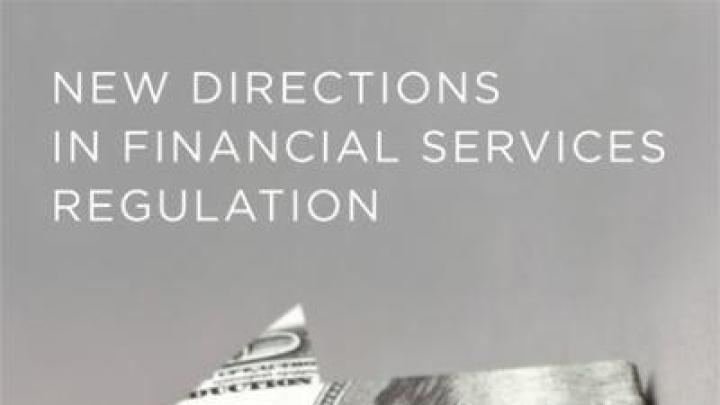The financial cataclysm of 2008 has by now perhaps yielded as many books as failed investment banks, mortgage firms, and hedge funds. New Directions in Financial Services Regulation (MIT, $35) would seem late to the parade. Yet its editors (IBM professor of business and government Roger B. Porter, adjunct lecturer Robert R. Glauber, and Center for Business and Government senior fellow Thomas J. Healey, all of the Kennedy School) shaped an unusually intelligent discussion of the intersection of business and government oversight during a late 2009 conference, now published here. Their Kennedy School colleague Richard J. Zeckhauser, Ramsey professor of political economy, summarized his recommendations on enhancing transparency this way:
Fancy financial products and nuclear weapons share features beyond their irremediable escape from Pandora’s box. Those who own them have power, respectively financial/economic power and military/political power. Though we might prefer that none had them, if our competitors have them, we certainly want them too. With financial instruments, this interactive relationship is true of firms as well as of nations. Further, both engineered financial products and nuclear weapons are extremely difficult to regulate, since critical elements of secrecy provide some of their value.
Surely some stiff modes of regulation will emerge to be placed on exotic financial products and on new financial institutions. But academia and Wall Street are infinitely creative, and 10 years from now new products and institutions will exist that offer or appear to offer superior profit opportunities, and that steer around the newly emplaced regulations.…
Regulation…cannot be the complete approach to effective risk control. Private players must have adequate and appropriate information to take actions that protect and avoid actions that endanger themselves. Thus I propose that we cast a bright light that reaches into the financial shadows.…
My analysis suggests that the current financial system has become effective at burying information that should be and can be uncovered. This unacceptable situation poses continuing dangers. Thus, I conclude, with apologies to Cole Porter:
Let’s Do It: Let’s Illuminate
We know that banks do it, geeks do it;
Even educated Greeks do it.
We do it,
We all obfuscate.Investment firms in New York do it;
Hong Kong hedge firms seeking torque do it.
We do it.
We all obfuscate.In London Town, AIG did it;
Moody’s, Fitch, and S&P did it.
We do it.
We all obfuscate.The Fed, feeling beyond reach, did it;
Bernie Madoff, in Palm Beach, did it.
We do it.
We all obfuscate.But I think that we can evolve; do it.
We only have to resolve; do it.
Let’s do it;
Let’s illuminate.Small light-emitting diodes do it;
Bugs and bolts of lightning do it.
Let’s do it;
Let’s illuminate.Enlightened leaders, they have done it;
Like Edison, we could bank on it.
Let’s do it;
Let’s illuminate.








